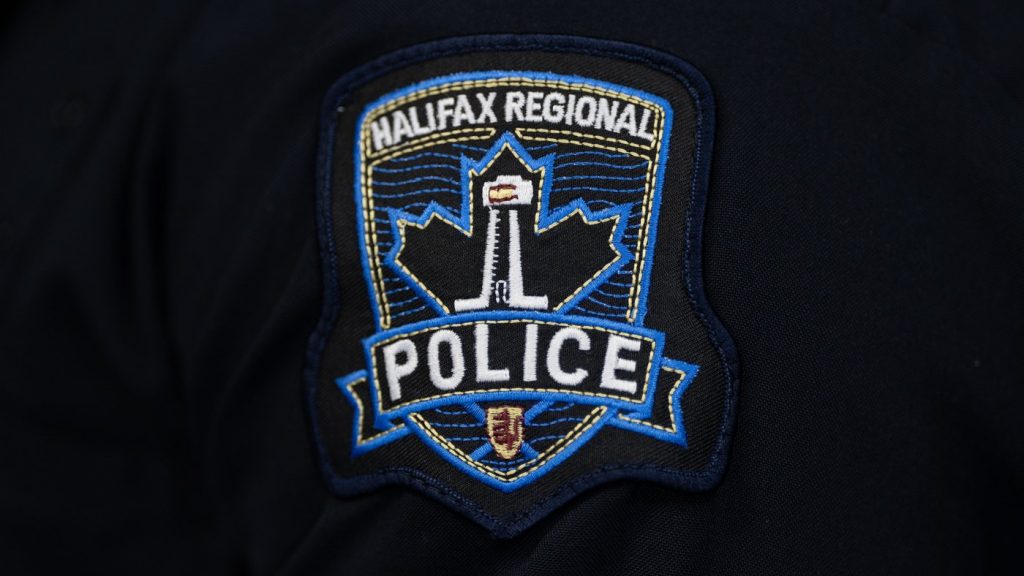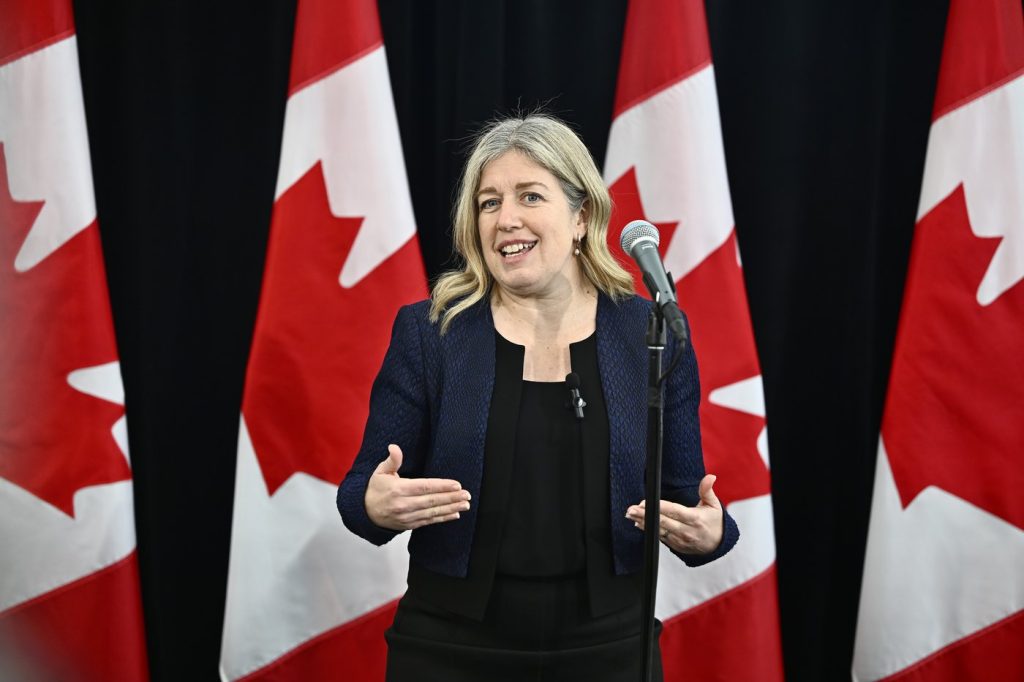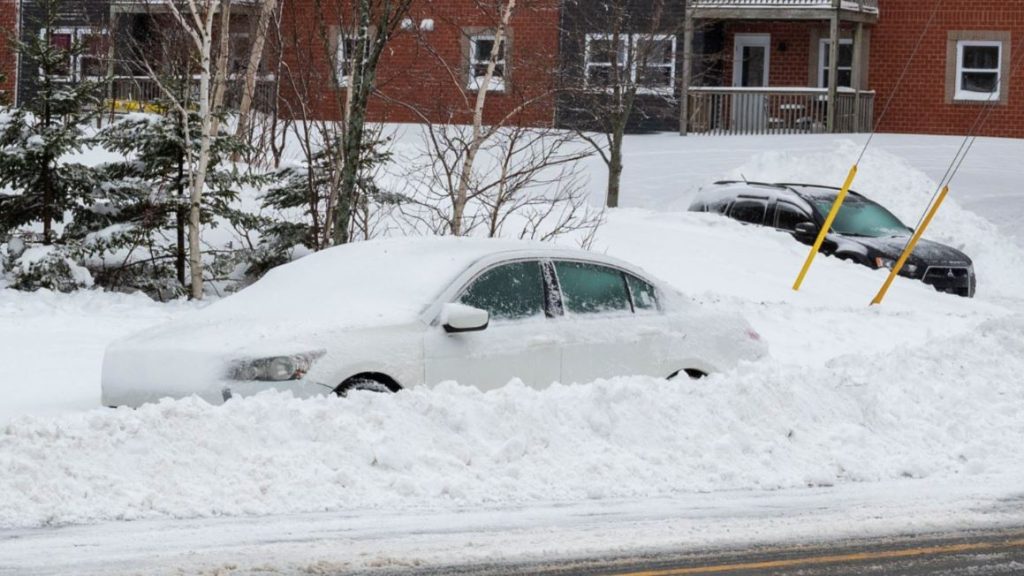‘Left in the dark.’ Nova Scotia premier frustrated with mass shooting inquiry
Posted Feb 22, 2022 09:21:09 PM.
HALIFAX — The commissioners leading the inquiry into the 2020 mass shooting that claimed 22 lives in Nova Scotia began their first day of hearings on the defensive Tuesday after Premier Tim Houston accused them of disrespecting the victims’ families.
About 90 minutes before the proceedings opened at the Halifax Convention Centre, Houston issued a scathing statement saying family members feel “left in the dark” about how the inquiry will work.
“This is not only disrespectful, it should cause us all to pause and ask, ‘If the families don’t have confidence in the process, how can the public?'” the premier said.
The inquiry has been conducting an independent investigation of the shooting rampage, which started on the night of April 18, 2020 when a gunman disguised as a Mountie killed 13 people and set fire to several homes and vehicles in rural Portapique, N.S.
The next day, the shooter, driving a replica RCMP cruiser, killed another nine people, including acquaintances and strangers. After leading police on a chase that spanned more than 100 kilometres, he was shot dead by police at a gas station north of Halifax.
On Tuesday, Houston called on members of the commission to meet with the victims’ families and provide them with a plan that “gives them confidence” in the process. He said Nova Scotians pushed for an independent, federal-provincial inquiry as opposed to an internal review to ensure it was “honest, comprehensive, detailed and most importantly, designed to answer questions.”
The premier highlighted criticism raised last week by lawyers who represent 23 individuals and families, noting the inquiry has yet to release a witness list and has been vague about whether witnesses will be subject to cross-examination.
“This uncertainty is causing further, unnecessary trauma,” he said.
Federal Immigration Minister and Nova Scotia MP Sean Fraser echoed Houston’s sentiments in a statement Tuesday, saying he has heard from victims’ families who don’t have faith in the inquiry. He said they’ve expressed “a general sense that the flow of information is being controlled in an effort to protect them, when what they want more than anything is the truth, no matter how difficult.”
The chairman of the commission of inquiry, former Nova Scotia chief justice Michael MacDonald, addressed some of the politicians’ concerns in his opening remarks, saying cross-examination will be part of the inquiry.
“If there is a witness who can provide more information, we will bring them here and ask them questions,” MacDonald said. “And we will enable legal counsel representing the participants to put forward questions and witness recommendations as well.”
MacDonald, however, said some witnesses have been left hurting and “even broken” by the killer’s rampage almost two years ago. “If we can get at the truth in ways that do not cause more hurt, then we have a responsibility to do so,” he said.
The former judge stressed that the commission has consulted regularly with the victims’ families over the past 16 months as it compiled so-called foundational documents that will guide the inquiry’s work.
MacDonald confirmed the inquiry will not be using a predetermined list of witnesses, which is how public inquiries are typically conducted. He said the sheer volume of information that must be reviewed won’t allow for that. With 17 crime scenes, hundreds of witnesses and 40,000 pages of documents to review, the commissioners have decided that most of the evidence will come from the foundational documents, expert panels and roundtable discussions.
“This inquiry could drift and drag on for years if we were to call all the witnesses involved in this,” MacDonald said. “Too often, I have seen the emotional toll of processes that go on and on, lives waiting in the balance. This process cannot drag on for five years.”
The commissioners have until Nov. 1 to file a final report with recommendations on how to improve public safety.
In all, there are 61 designated participants involved in the inquiry, including victims’ relatives, injured survivors, first responders, police officers and the federal and provincial governments.
Houston told reporters he issued his statement as “a bit of an exclamation point” because he was growing anxious about how the inquiry would be conducted. He said he isn’t worried that his intervention will undermine confidence in the hearings.
“There is no room for error here, we have to get to where we need to get to,” he said. “Where people have concerns, that’s the time to raise them, because there is always time to adjust.”
However, Barbara McLean, the commission’s director of investigations, said the commission staff were “surprised and disappointed” by Houston’s comments.
“The mass casualty commission is an independent inquiry and must remain free from interference or external direction,” she told reporters.
Nick Beaton, the husband of shooting victim Kristen Beaton, has said he and other relatives of victims are seeking a list of witnesses who will testify and a commitment from the commission that RCMP witnesses will face cross-examination. In addition, he said in a recent Facebook post that the families are seeking confirmation that Lisa Banfield, the killer’s spouse, will be called as a witness.
As the hearings began, MacDonald read the names of all 22 victims and called attention to the fact that one of them, Beaton, was pregnant when she was shot dead on April 19, 2020, near Debert, N.S. The former judge then called for a moment of silence.
“It shocked the nation, reverberating throughout our communities, institutions and governments,” MacDonald said of the killings. “The ripples run deep and wide.”
Inside the ballroom at the downtown convention centre where the hearings are being held, separate tables have been set up for the victim’s families and other participants affected by the tragedy.
“Many of the events and issues we will be dealing with in these proceedings are going to be hard and potentially distressing to hear,” MacDonald warned.
Later in the day, the inquiry featured an hour-long panel discussion with six experts who talked about the tragedy’s impact on the mental health of Nova Scotians and Canadians in general.
This report by The Canadian Press was first published Feb. 22, 2022.
— With files from Keith Doucette
Michael MacDonald and Michael Tutton, The Canadian Press








